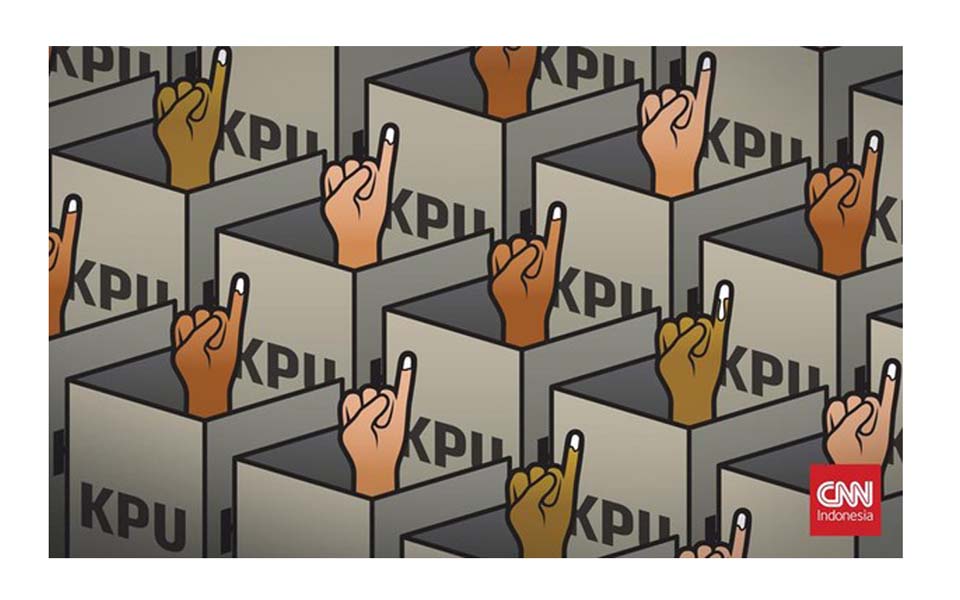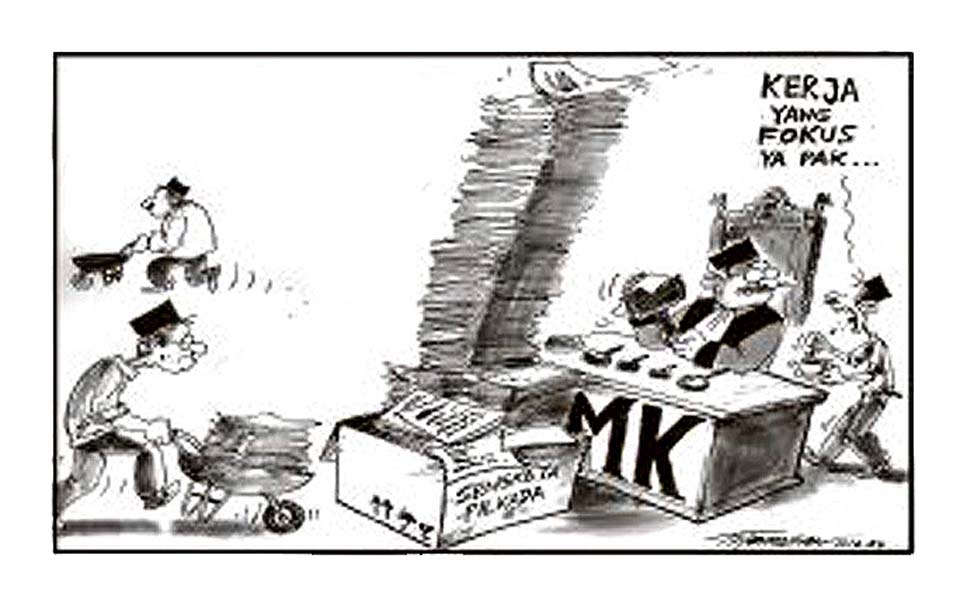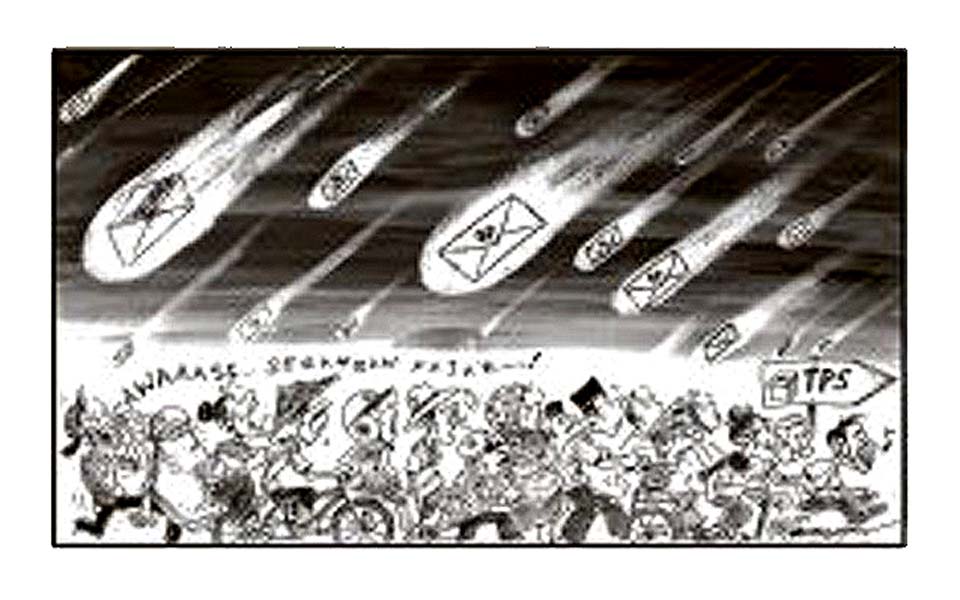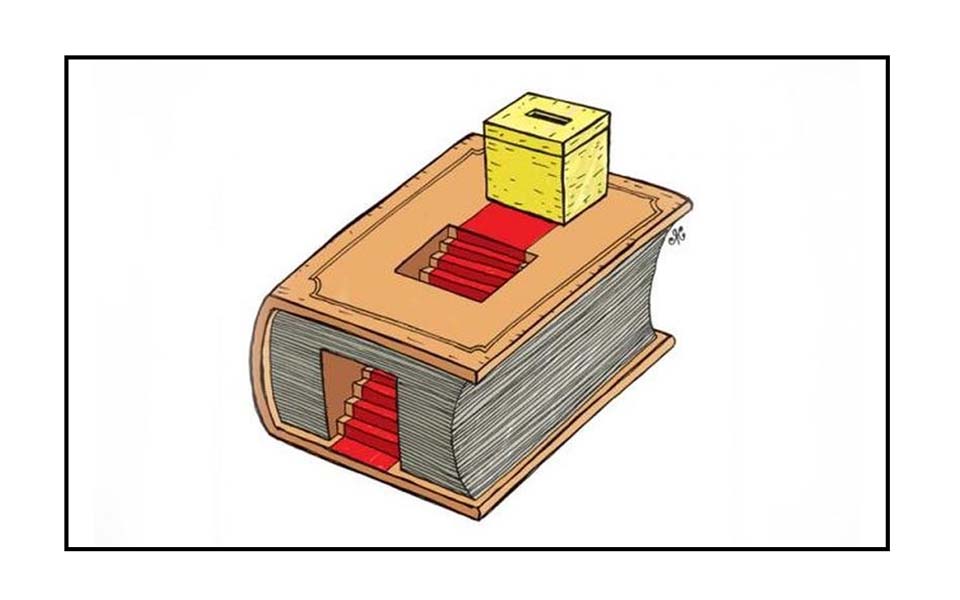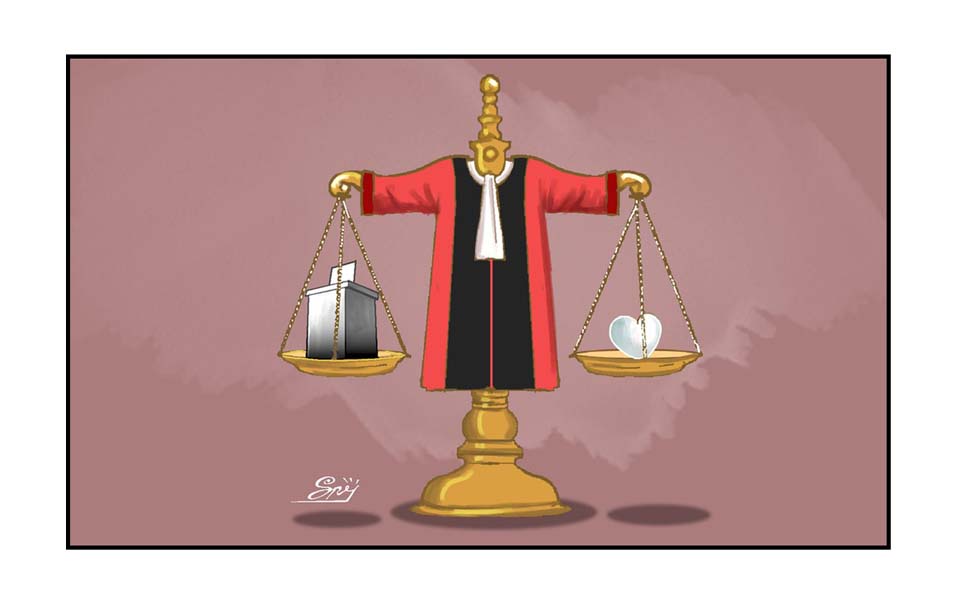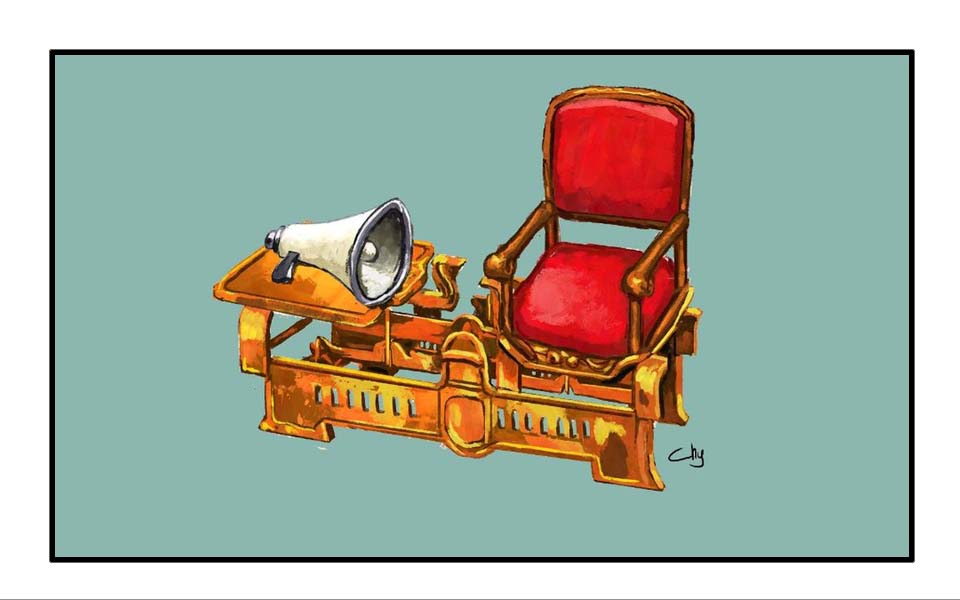
Box reads: Empty ballot box
The number of sole candidates running in regional elections has steadily grown over the past five years leading to growing concerns that the upcoming polls may undermine the electoral system.
According to the General Elections Commission (KPU), a total of 28 out of the 270 regions holding elections this December are likely to see a single candidate pair run for the top seats.
This is more than nine times as many as when sole candidacies were first allowed in the 2015 elections. KPU data shows that the number of sole candidates steadily increased from only three in the 2015 elections, to nine in 2017, 16 in 2018 and now 28.
One of the main sticking points is the tougher requirements independent candidates have to meet prior to even registering their intent to run.
In the 2015 polls, candidates were required to gather the identity card numbers of 3 to 6.5 percent of voters on the final voters list in their respective regions. This was later raised to 6.5 to 10 percent of voters.
A lone candidate pair contesting elections rarely loses to the "blank box", a space on the ballot paper provided to voters who wish to reject the sole candidate pair.
Sole candidates have only been allowed since 2015, after the Constitutional Court struck down a clause in the Regional Elections Law requiring the KPU to confirm at least two candidate pairs in every provincial, regency or municipal election. But the new provisions have instead exposed the failings of the current political party system.
Critics have long pointed to the failure of so-called regeneration among political parties as a possible driver for the lack of competent candidates running for office, resulting in a surge in one-horse races.
They also say that instead of backing their own members as candidates, political parties tended to partner up in big-tent coalitions and support the candidate pair that was most likely to win, such as incumbent leaders or members of existing political cliques.
According to KPU data, 16 out of 28 prospective sole candidates are incumbents, while the remaining few are either members of regional councils or relatives of prominent figures in the country.
Such candidates also are prone to misusing their power, whether embezzling regional funds or political horse-trading for positions in the administration.
Based on an article by the Jakarta Post dated September 12 titled Rising number of uncontested races undermines regional polls: https://www.thejakartapost.com/news/2020/09/11/rising-number-of-uncontested-races-undermines-regional-polls.html





